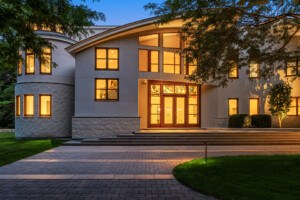Rents Are Rising in Boston, Again
The average rent in the city is now up to $2,152.

Photo via iStock/DenisTangneyJr
It’s not just your rent—it’s everyone’s rent. The cost of leasing an apartment in Boston is reportedly once again on the rise, and the average monthly payment for renters in the city has climbed to a new high: $2,152.
A new report from the Boston Globe on real estate data has found that rents are climbing again, after the increase appeared to stall last year. Average rents have gone up 4 percent this year, according to analysts at Reis Inc., which previously found rents had actually dipped slightly in late 2016 for the first time since 2010.
It’s not great news for the many Bostonians facing growing housing costs, and it’s not like there are many affordable places for the rent-burdened to go. The rapid rent increases are pushing tenants into neighboring communities and less-expensive neighborhoods, which is in turn inflating the cost of living in those places, the report found.
None of this should come as a surprise in a city that consistently ranks among the most expensive in America, and where increasingly inflating housing prices are a long-unsolved problem. The average rent in Boston crested $2,000 per month for the first time in 2016, and has shown few signs of slowing down. The numbers are pretty grim. A recent RentCafé analysis found that a $1,500 rent in Boston (if you’re lucky enough to find a place that cheap) buys you a cozy 359 square feet of living space in this market. And if you want to live alone in a one-bedroom in Boston and avoid shacking up with a roommate to cut costs, another report found, you have to make a whopping $78,477 a year in salary.
Among efforts to make sure people who can’t afford rent that high have a place to live, state Senators last week approved a proposal for $1.8 billion in affordable housing bonds, which could lead to 17,000 new affordable units statewide.
In Boston, the news comes as the City Council’s Committee on Housing and Community Development plans to host a hearing Tuesday at City Hall on “housing speculation,” as well as “displacement of communities, proliferation of luxury units and whether the standards of affordability in new development match incomes of current Boston residents.” It’s scheduled for 1 p.m.


